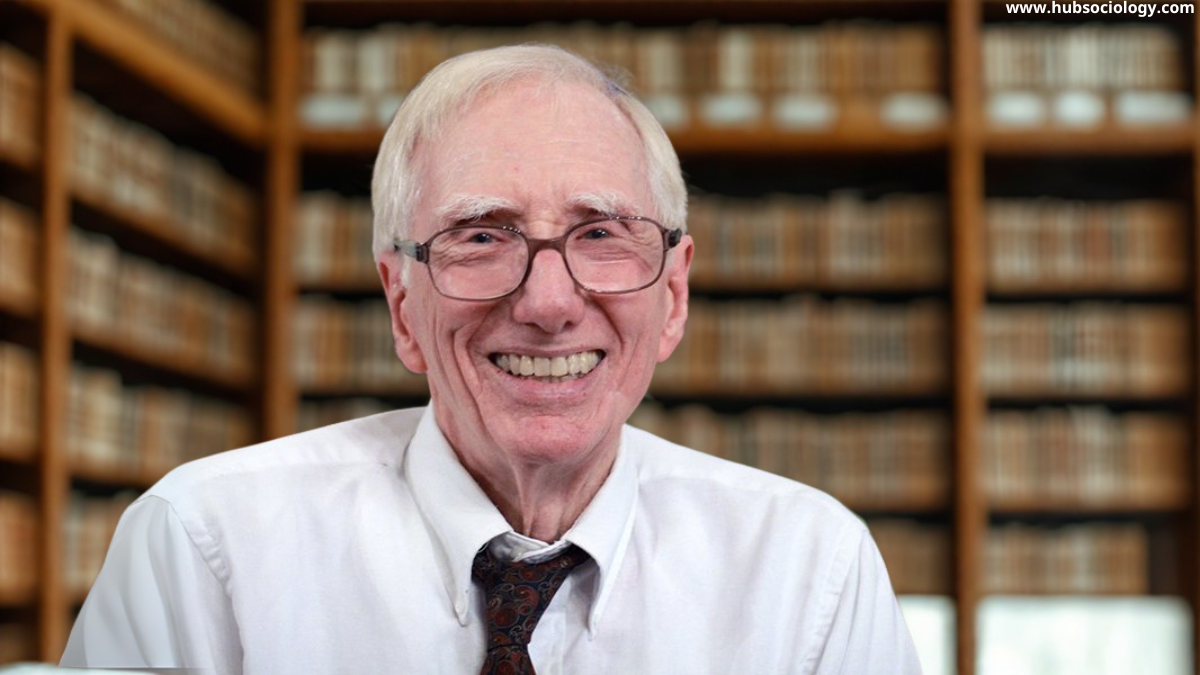Introduction on R N Bellah on Contemporary Approaches
Religion, as a deeply rooted social phenomenon, has long occupied a central place in sociology. Robert Neelly Bellah (1927–2013), one of the leading intellectuals who transformed the study of religion in the modern era, is notable for his complex, historically informed, and multidisciplinary methodology. Bellah’s contributions stretch from his classic work on civil religion in America to his grand synthesis in Religion in Human Evolution (2011). His scholarship bridges sociology, anthropology, evolutionary theory, and history, situating religion not merely as a set of beliefs and rituals but as a dynamic mode of human meaning-making that evolves with social structures.
This article explores R N Bellah’s approach to religion, its theoretical foundations, and its relevance in contemporary sociological analysis.

Table of Contents
Bellah’s Intellectual Context
Bellah belonged to a generation of sociologists influenced by classical theorists like Max Weber and Émile Durkheim while also responding to the mid-20th-century sociological challenges of secularization, modernization, and pluralism. His training at Harvard, exposure to anthropology, and his interest in comparative historical sociology shaped his unique orientation. While secularization theory dominated much of the 20th-century discourse, Bellah sought to expand the framework: he acknowledged the transformations of religion in modern societies but resisted simplistic narratives of religious decline. Instead, he emphasized adaptation, innovation, and the persistence of religious forms in secular environments.
Civil Religion: Religion in the Public Sphere
One of Bellah’s most influential contributions was the concept of civil religion, introduced in his 1967 essay Civil Religion in America. Here, Bellah argued that beyond denominational faiths, the United States embodies a shared religious dimension that provides national meaning, especially visible in presidential speeches, national rituals, and commemorations. Civil religion draws upon transcendent symbols—God, freedom, sacrifice, destiny—that unify a pluralistic society.
From a sociological perspective, this notion challenged the assumption that modernization necessarily privatizes religion. Instead, Bellah demonstrated that religion can operate in a secular political framework, providing legitimacy to state institutions and collective identity. The Vietnam War, the Civil Rights Movement, and later debates on American foreign policy were interpreted through this lens of civil religion.
In contemporary sociology, civil religion remains relevant in understanding nationalistic religious discourses, whether in American patriotism, Indian secular nationalism, or Japanese Shinto-influenced state symbolism. Bellah’s work here bridges religion and politics, showing how symbolic systems shape collective moral orientations.
Religion and Social Evolution
Bellah also made significant contributions to the evolutionary study of religion, especially in his monumental work Religion in Human Evolution (2011). He argued that religion is not static but emerges from the long trajectory of biological and cultural evolution. Drawing on insights from anthropology, neuroscience, and evolutionary biology, Bellah situated religion as a product of human symbolic capacity, play, and imagination.
Bellah’s evolutionary framework identifies different stages of religion:
- Tribal Religions – Rooted in myth and ritual, emphasizing kinship and collective survival.
- Archaic Religions – Emerging in agrarian civilizations with priesthoods, temples, and hierarchical cosmologies.
- Axial Age Religions – Transformative traditions (c. 800–200 BCE) such as Confucianism, Buddhism, Judaism, and Greek philosophy, which introduced reflexivity, transcendence, and ethical universality.
- Modern Transformations – Marked by rationalization, pluralism, and individualism, where religious meaning is renegotiated within secular frameworks.
This model builds on Karl Jaspers’ “Axial Age” thesis but expands it with sociological depth. For Bellah, the Axial Age represented a decisive shift in human consciousness where religions began to question existing social orders and envision universal ethics beyond tribal or state boundaries.

Methodological Approach: Bridging History and Sociology
Bellah’s contemporary approach to religion was distinctively comparative and interdisciplinary. He combined historical depth with sociological analysis, moving beyond the narrow confines of survey-based sociology of religion. His approach can be summarized as:
- Historical Sociology: Religion cannot be studied in isolation but must be contextualized within historical trajectories of social evolution.
- Cultural Anthropology: Ritual, myth, and symbolism form the building blocks of religion, requiring anthropological sensitivity.
- Critical Sociology: Religion must be analyzed not only as cohesion but also as a potential instrument of domination, inequality, or resistance.
- Evolutionary Theory: Religion emerges as part of broader cognitive and cultural capacities of humans, making it a deeply embedded social fact.
Through this methodological pluralism, Bellah offered a nuanced view of religion as neither vanishing under modernity nor immune from historical change.
Religion, Modernity and Pluralism
Bellah was critical of simplistic secularization theories that predicted the inevitable decline of religion in modern societies. Instead, he highlighted processes of transformation. Modernity, he argued, does not erase religion but reconfigures it. In pluralistic societies, individuals and groups reinterpret traditions, and new religious movements emerge alongside established ones.
In The Broken Covenant (1975), Bellah lamented the erosion of civil religion in America, suggesting that a fragmented society risks losing its moral compass. Later, in Habits of the Heart (1985, co-authored), he explored individualism and community in American life, noting how religion interacts with consumerism, family, and public values. These works underscored his commitment to studying religion not as isolated doctrine but as an active force in everyday life and collective identity.
Bellah’s Place in Contemporary Sociological Theory
Bellah’s contributions resonate strongly in contemporary debates on religion:
- Religion and Politics: His concept of civil religion provides a framework for analyzing how political leaders invoke religious symbols to unify or divide societies.
- Globalization and Religious Diversity: Bellah’s evolutionary and comparative lens helps in understanding how religions adapt in global contexts, balancing universality with local identity.
- Public Religion: Contrary to the secularization thesis, Bellah’s work supports the notion of “de-privatization of religion” where faith traditions continue to influence public life.
- Interdisciplinary Dialogue: By integrating biology, anthropology, and sociology, Bellah set a model for future scholars to approach religion beyond disciplinary silos.
Critiques and Limitations on R N Bellah on Contemporary Approaches
While widely influential, Bellah’s work has also faced critiques. Some argue that civil religion risks blurring the line between religious faith and political ideology, potentially legitimizing state power uncritically. Others note that his evolutionary framework, though rich, can appear teleological—implying a linear progression of religious forms. Moreover, critics from postmodern and postcolonial perspectives challenge his tendency to universalize religious trajectories, pointing out the diverse and contested nature of religious practices.
Nonetheless, even these critiques highlight the enduring relevance of Bellah’s scholarship, as they provoke debate and further theoretical development.
Contemporary Relevance on R N Bellah on Contemporary Approaches
In today’s world, marked by religious pluralism, resurgent nationalism, and global interconnectedness, Bellah’s insights remain vital. His emphasis on symbolic systems, collective meaning, and historical depth allows sociologists to interpret phenomena like:
- The rise of political Hinduism in India as a form of civil religion.
- Evangelical influences in American politics.
- Global interfaith dialogues addressing climate change and social justice.
- The persistence of ritual and myth in secularized societies, from sports events to national ceremonies.
Bellah equips sociologists with conceptual tools to see religion not as a relic but as a living, evolving dimension of human societies.
Conclusion on R N Bellah on Contemporary Approaches
R. N. Bellah occupies a pivotal place in the sociology of religion, offering a framework that is both deeply historical and acutely attuned to contemporary realities. His notions of civil religion, evolutionary development, and the Axial Age provide rich tools for understanding how religions adapt, persist, and shape modern societies. By bridging sociology, anthropology, and evolutionary theory, Bellah redefined the study of religion as an exploration of human meaning-making across time and culture.

In a world where religion continues to shape identities, politics, and moral visions, Bellah’s sociological approach offers both explanatory depth and critical reflection. His legacy challenges us to study religion not as an isolated belief system but as an evolving social force, central to understanding humanity’s past, present, and future.
Do you like this this Article ? You Can follow as on :-
Facebook – https://www.facebook.com/hubsociology
Whatsapp Channel – https://whatsapp.com/channel/0029Vb6D8vGKWEKpJpu5QP0O
Gmail – hubsociology@gmail.com
Topic-related exam-style questions on R N Bellah on Contemporary Approaches
5 Marks Questions on R N Bellah on Contemporary Approaches
- Define R. N. Bellah’s concept of civil religion.
- What role does the Axial Age play in Bellah’s theory of religion?
- Mention two key criticisms of Bellah’s evolutionary approach to religion.
- How did Bellah critique the secularization thesis?
- State one contemporary relevance of Bellah’s work on civil religion.
10 Marks Questions on R N Bellah on Contemporary Approaches
- Explain R. N. Bellah’s methodology in the study of religion, highlighting his interdisciplinary approach.
- Discuss Bellah’s contribution to the study of religion in modern pluralistic societies.
- Analyze the significance of Bellah’s work Habits of the Heart for understanding the relationship between religion, individualism, and community.
- Compare Bellah’s concept of civil religion with Durkheim’s idea of collective conscience.
- Evaluate the relevance of Bellah’s ideas in the study of religion and politics in contemporary societies.
15 Marks Questions on R N Bellah on Contemporary Approaches
- Critically examine R. N. Bellah’s theory of civil religion. How does it help in understanding the relationship between religion and nationalism?
- Discuss Bellah’s evolutionary framework of religion from tribal to Axial Age religions. How does it enrich contemporary sociological analysis?
- Evaluate R. N. Bellah’s overall contribution to the sociology of religion, highlighting both strengths and limitations of his approach.
- How does Bellah’s work challenge the traditional secularization thesis? Illustrate with examples from contemporary societies.
- “R. N. Bellah’s approach to religion combines historical depth with sociological analysis.” Discuss with reference to his major works.
